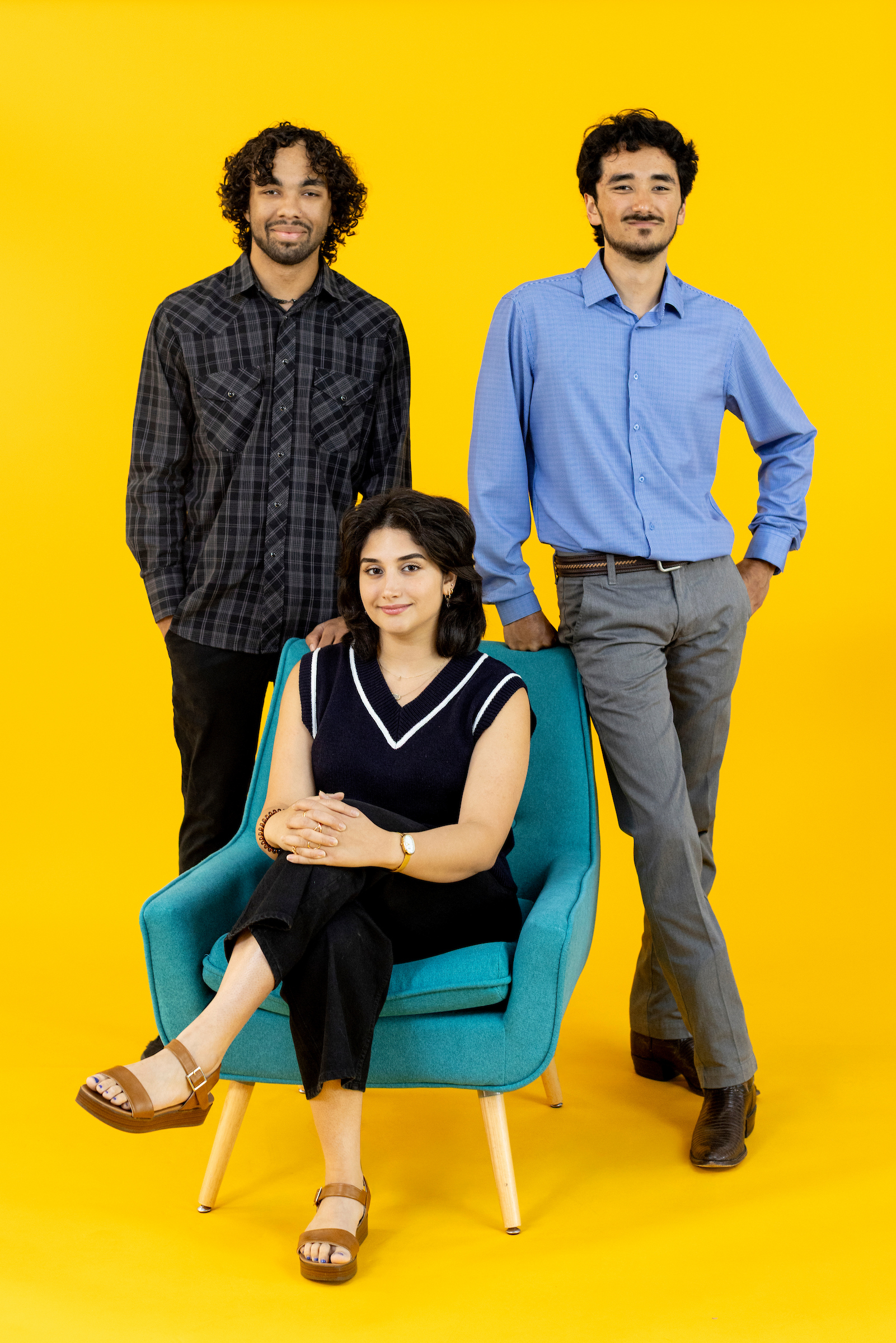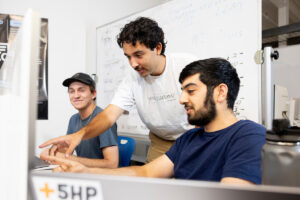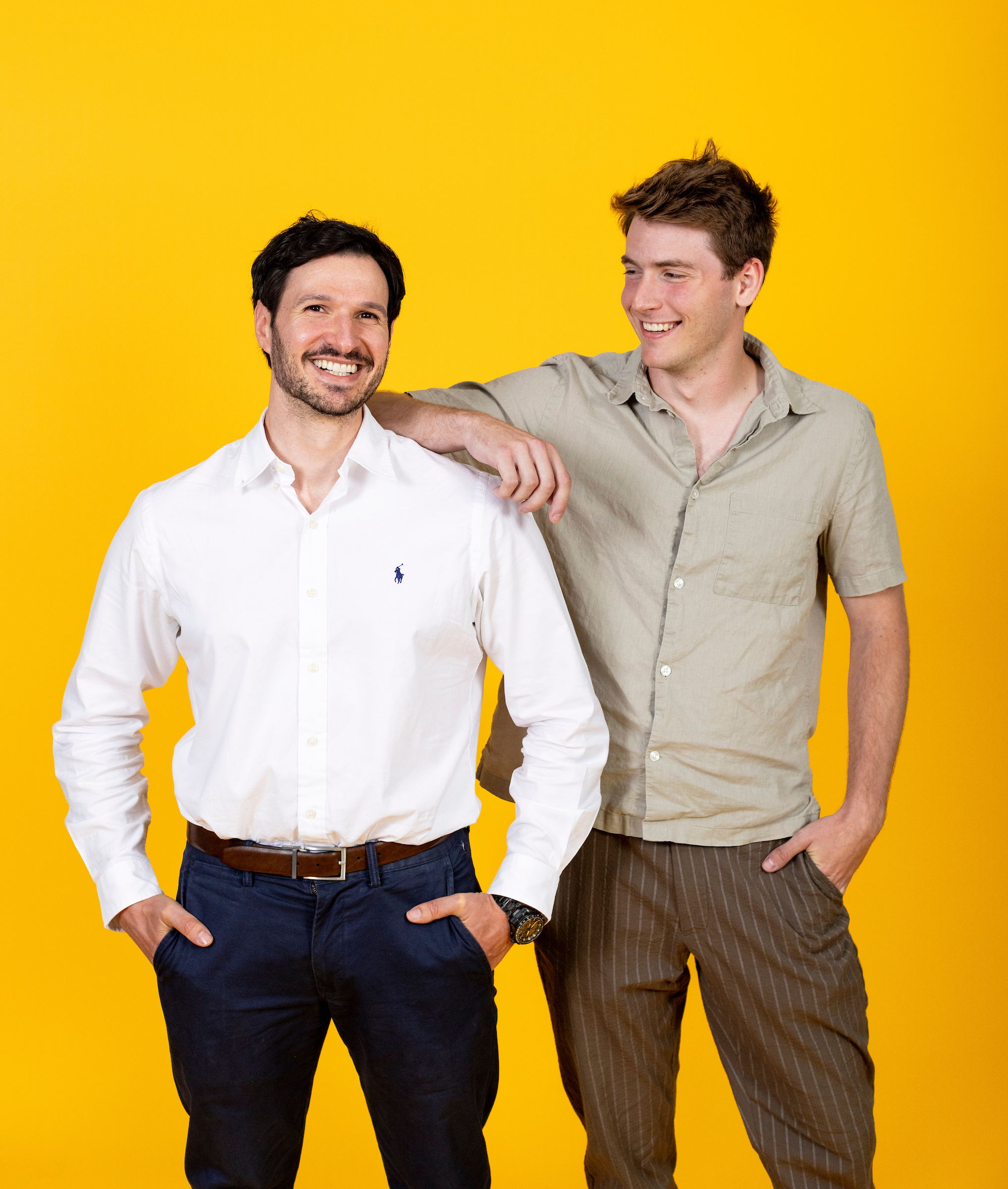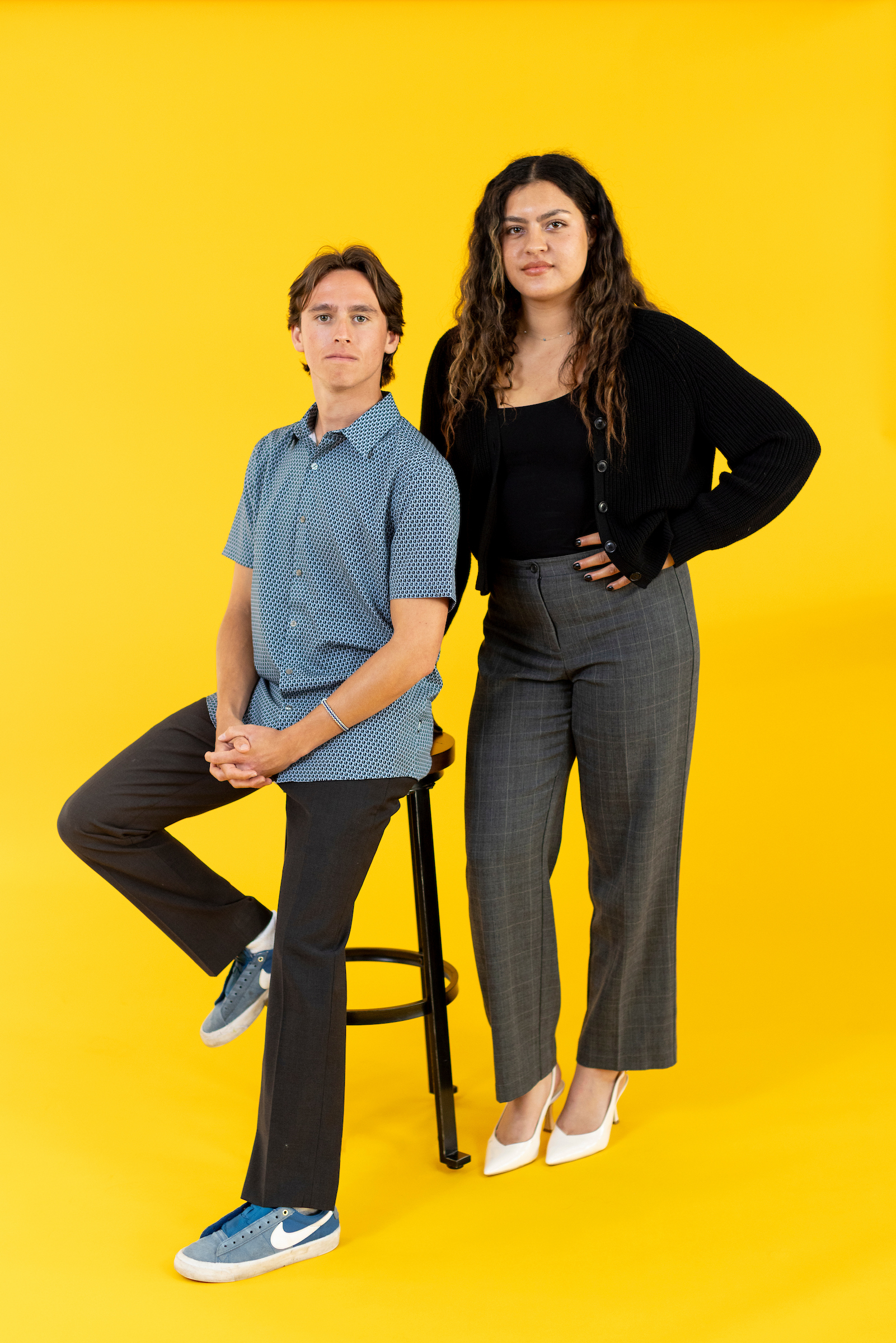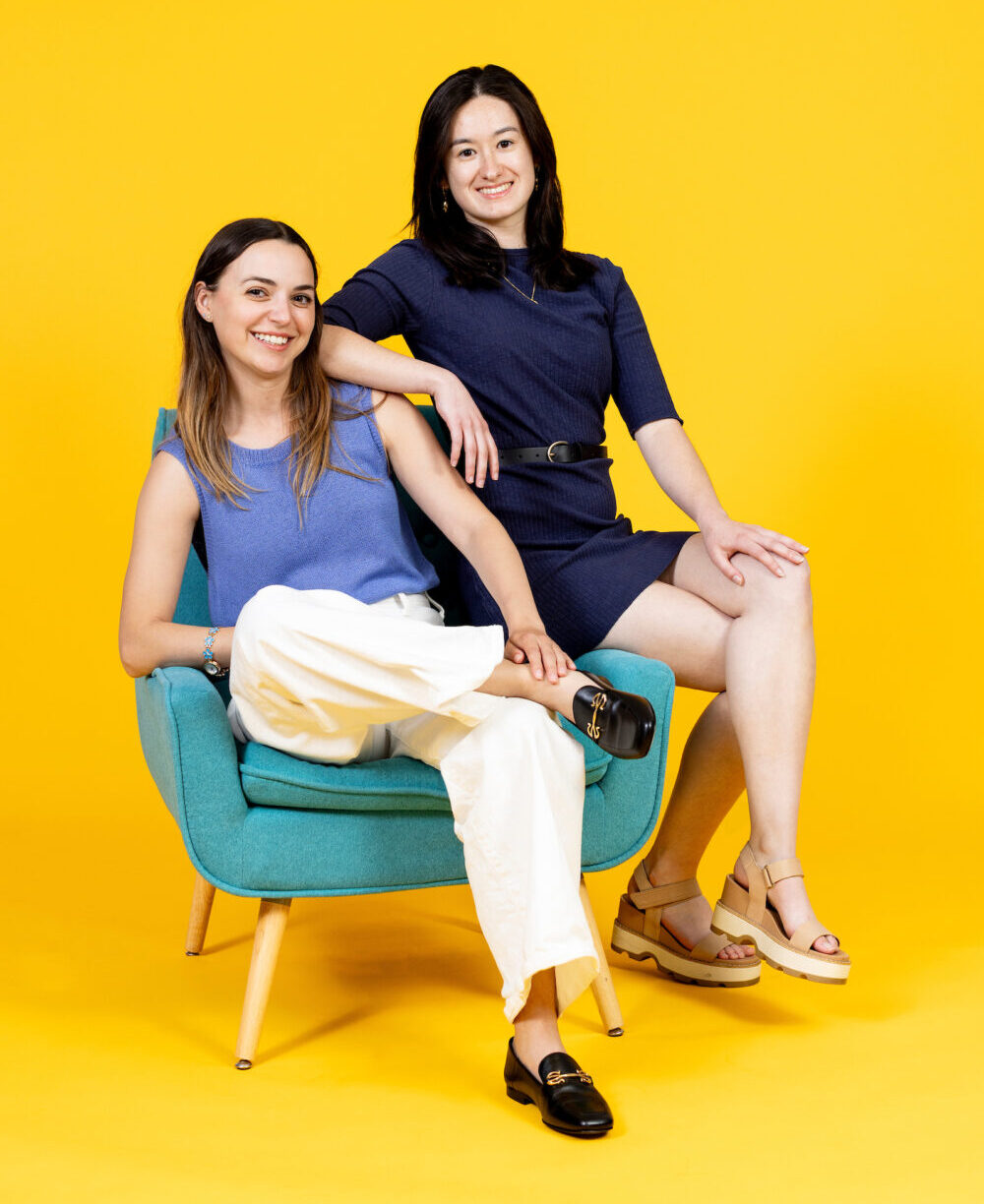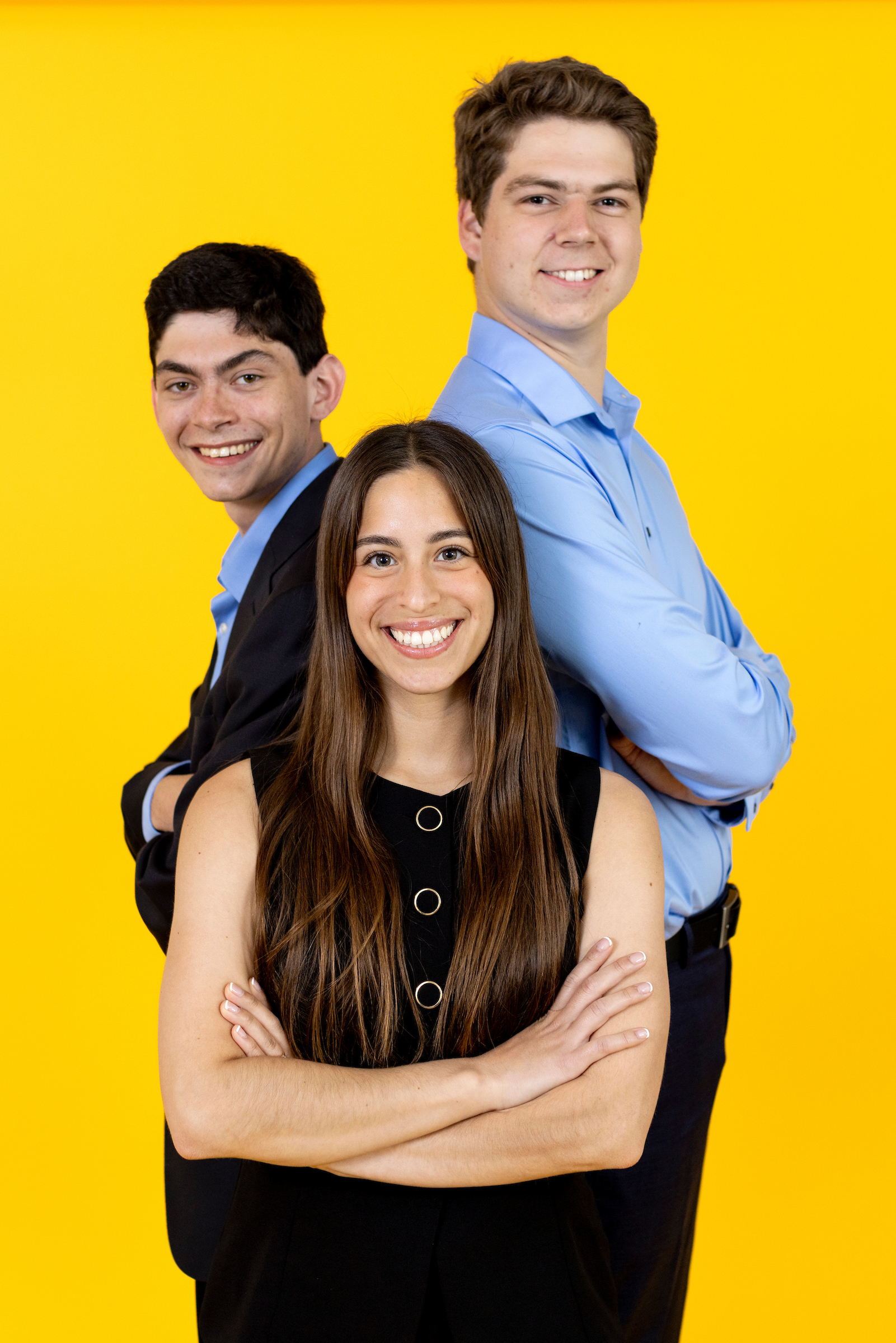by Melina Hernandez | January 21, 2026 |
Q&A The Cal Poly Center for Innovation and Entrepreneurship (CIE) recently welcomed Peter Falzon as its new Executive Director. In a conversation moderated by CIE SBDC Economic Development Director Donica Forensich, Falzon shared his background, what excites him about this role and his vision for the future of entrepreneurship at Cal Poly and across the Central Coast.
Q: Tell us a little bit about your background and what led you to this role.
Peter: I am a native of Michigan. We have been coming to this area for about 20 years, and it’s pretty easy to fall in love with San Luis Obispo. So we started making a plan to eventually land here, and we landed here about three years ago.
My background is in tech. Even though I am a graduate of the University of Michigan, my first real job was with a Silicon Valley company, which was a laser technology company that made medical devices for eye surgery.
Along the way, I lived in Japan for about 10 years as a student and early in my career just after college, so a lot of my approach to life and business is influenced by my time in Japan.
Before I took this position, I mentored for the Summer Accelerator program and I was part of the CIE advisory council, so I’ve been familiar with the program as a whole, but stepping into this specific role opens up new opportunities for me to make a difference in the community.
Q: How did you first get involved with entrepreneurship?
Peter: Working in the medical device industry, starting this company in Japan, was the beginning of a series of opportunities that took me down a path of being an entrepreneur. I kept taking detours because an opportunity came up and those opportunities were interesting more often than not.
For example, one of the engineers had an idea to build a hair removal laser and management didn’t want to fund the project. So he went out and got funding, built it in his garage, and when he had a product, he called me and said, ‘Do you want to come over here and help me build this business?’ We built that company and took it public in 2004. I wasn’t one of the founders but I was one of the early management team, and it was a great experience.
When you go through an experience like that, it gives you the ability to then spend time with other people who are starting the experience, share your advice, give back and help them navigate the path.
Q: What makes Cal Poly’s entrepreneurship offerings different from other entrepreneurship programs?
Peter: A couple of things. First, it’s so student-focused. Most of the large research universities are focused on faculty startups, but Cal Poly is different. It’s all about the students.
Number two is the quality of the student programs. I learned very quickly that what Tom Katona has built at the CIE is unmatched. The experience that the students get and the dedication and knowledge that Tom brings to all of the programs is critical.
And then third, the most important decision was to make it interdisciplinary. Even though it lives in the Orfaela College of Business, it’s interdisciplinary and my job is to make sure that it’s connected to programs in all of the schools.
Q: How do you plan to build bridges across campus and strengthen interdisciplinary entrepreneurship?
Peter: There is a once-in-a-lifetime opportunity taking place right now, a decision to hire entrepreneurship faculty in every college over the next year. With entrepreneurship faculty in each college, it’s really only the CIE that can connect them to each other and make sure that they don’t become siloed resources, but a unified asset for the students and the community. I am not an academic so I have some learning to do, but bringing them together and giving them an opportunity to interact is a huge opportunity.
Q: What’s driving the investment in entrepreneurship right now?
Peter: Research shows that one in five college-age people today wants to start and run their own business. With technology fueling their ambitions—especially the advent of AI—the design, the market research, the strategic planning cycles are just so compressed because AI does so much of the work. The interest in becoming entrepreneurs is only growing, and it’s very much in Cal Poly’s interests to showcase its entrepreneurship programs.
Q: What surprised you most about the CIE’s offerings beyond campus?
Peter: The CIE is also pretty unique in that it’s not just serving students, but it’s serving the community. The fact that the SBDC is embedded inside the CIE is really valuable and really unique. In addition to students, we provide them with the transition to take their learnings and build companies—along with community entrepreneurs. The goal is to diversify the economy. We also encourage more students to stay here and contribute to the Central Coast economy.
Q: Where do you see the most opportunity for startup growth on the Central Coast?
Peter: I think it’s in three areas. First, tech, accelerated by everything that’s happening in AI. Second, biomed healthcare is approaching 20% of the economy, and we have a great biomedical engineering program. Third, ag tech is becoming more and more important for the health of the planet. Cal Poly’s at the forefront to help bring more of that innovation out into the community, which is a huge opportunity.
Q: How can local businesses and community leaders better support entrepreneurs, either coming out of Cal Poly or want to start their business across the Central Coast?
Peter: Partner with the CIE. Visit, take a look at the programs, and spend time with the SBDC. If you’re running a business in town, economic development is important for your business too, and we’re trying to drive that. Supporting the CIE is really in your interest—and community donations and support is critical.
Q: What are you most excited about in your new role at the CIE?
Peter: Obviously, the new space at the corner of Chorro and Marsh is going to give us a chance to really have a marquee and more of a presence in town.
Right now, people walking up and down the streets in San Luis Obispo have to kind of look for our tiny little sign and walk up the stairs. So we’re going to be much more visible in the community and therefore, have much more of a presence. I’m excited for that.
Q: What’s your long-term vision for the CIE?
Peter: My three-week answer is probably going to be different than my three-month answer, but I’ll take a stab at it.
The CIE will be much more impactful when we get to a place where we are endowed, so if you make a commitment to a five-year program, you’ll be able to see it through. Getting the CIE to a point where it’s an endowed enterprise with a strong economic foundation will make it a permanent asset in the community.
Q: Is there anything else you want people to know about you?
Peter: I am here because I am driven by a desire to connect to this community and do something positive.
I spent the last seven years raising venture capital and hiring people, but once I relocated to SLO, it became time to spend time with real people and get to know people in my community.
Whatever I do, my goal needs to be local, contributing to my community and connecting me to the people in my community. That’s my reason for being here.
We’re excited to welcome Falzon to the CIE and look forward to the impact of his leadership on campus and across the Central Coast. To hear more about Falzon’s background and vision for the CIE, watch the full video at https://www.youtube.com/watch?v=-XPgqBUMFwQ&t=1s.
